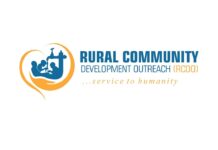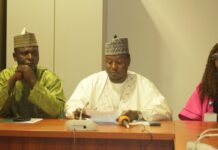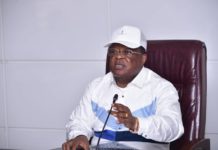The Coordinating Minister of Health and Social Welfare, Prof. Muhammad Ali Pate has stated that plans are underway to expand the PHCs from 8300 to 17,000 through the National Primary Healthcare Development Agency (NPHCDA) to enable them to deliver essential services to Nigerians. Pate stated this on Friday at the sectoral ministerial press briefing to mark the first anniversary of President Bola Tinubu in office.
Pate said: “There is N260 billion sitting right now at the states’ level. All the states of the federation have been mobilised for the revitalisation of the PHCs.
“This is a resource that is from the International Development Association, either, and from the Basic HealthCare Provision Fund because when we said we’re going to revitalize our PHCs, the key to doing that is the resources to be available.”
“So a lot of the effort that has been going on over the last several months is to mobilise the resources to be able to deploy, and the states have this N260bn in their pockets available.”
He also explained that the government will provide the states with guidelines for the implementation of the revitalisation and equipment of medical facilities.
His words: “Before this administration, we had looked at the previous years’ audits of how some of these resources were being utilised, and we realised that there were major gaps in several states, and we addressed it through the National Economic Council through the Governor’s Forum.
“I want to call out our state governors they leaned in because they saw the direction that the President has laid out through the Health Sector Renewal Initiative and the compact that they signed, and they acted to ensure that we remedy so that the resources would go to intended purposes.
“When we disbursed the BHCPF, we do that in public, and we would put hotlines for Nigerians to report if any of the resources are being misused. We asked the Independent Corrupt Practices and Other Related Offences Commission and the Economic and Financial Crimes Commission to keep an eye on it because the implementation is at the state level.
“We raised the resources, but the states have to implement, but we have to make sure that the resources go to the intended objectives in terms of infrastructure equipment.”
“The trainers have been trained in all the states of the federation, and I believe in the next one or two weeks, the training will commence. The guidelines have been revised, and printed and we raise the resources to be able to do that so that over the next three years, at least 120,000 frontline health workers, those who are serving our population in rural areas will have the capability, the skills, in addition to the infrastructure and the equipment that we have provided.”
The Minister also reiterated that President Tinubu is determined to unlock the healthcare value chain and to domesticate production capabilities to produce what Nigerians need.
He further stated: “He approved the presidential initiative to unlock the healthcare value chain in October. Since then, we have made steady progress in terms of unlocking Nigeria’s healthcare value chain.
“The first policy measure is a draft executive order which we have now produced, and finalised, and if the President assents, it would reduce the barriers in terms of import of raw materials, import of equipment for pharmaceuticals and devices so that Nigerians will be able to produce what we need, whether it’s syringes or needles, whether it’s generic pharmaceuticals and also test kits, and long-lasting insecticide-treated nets for malaria.
“We had mentioned that bed nets that we use for malaria are produced outside that. Why can’t we produce them here?”
He noted that international investors are coming to indicate interest in producing health and medical products in the country.
“The President has been very effective in marketing Nigeria that we are open for business and drawing foreign direct investment.
“We have seen that in many of the trips that he has taken abroad, and in the health sector, we have seen increasing interest from external investors who are willing to come and produce in Nigeria.”
On the current administration’s plans to unlock the healthcare value chain, Pate said the President has emphasized the importance of domesticating production capabilities, retaining economic value, and creating jobs for our youth.
“The first policy measure, a draft Executive Order, has been produced and finalized. Once signed by the President, it will reduce barriers related to the import of raw materials and equipment for pharmaceuticals and medical devices.
“This policy change will enable Nigerians to produce essential items domestically, such as syringes, needles, generic pharmaceuticals, test kits, and long-lasting insecticide-treated nets for malaria. We aim to shift the production of bed nets, currently manufactured abroad, to local production, fostering self-sufficiency and economic growth. One of the world’s largest treated bed net manufacturers is exploring ways to establish a manufacturing plant in Nigeria to produce for Africa
“The forthcoming executive order, prepared in collaboration with the Attorney General, will pave the way for local manufacturing, job creation, and economic value retention within Nigeria. This initiative will shape the pharmaceutical market to support local industries.” He added.
END












































